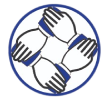Languages

Map showing the traditional language families represented in Africa:
Afroasiatic (Semitic-Hamitic)
Austronesian (Malay-Polynesian)
Central and Eastern Sudanese
Central Bantoid
Eastern Bantoid
Guinean
Western Bantoid
By most estimates, well over a thousand languages (UNESCO has estimated around two thousand) are spoken in Africa. Most are of African origin, though some are of European or Asian origin. Africa is the most multilingual continent in the world, and it is not rare for individuals to fluently speak not only multiple African languages, but one or more European ones as well. There are four major language families indigenous to Africa:
The Afroasiatic languages are a language family of about 240 languages and 285 million people widespread throughout the Horn of Africa, North Africa, the Sahel, and Southwest Asia.
The Nilo-Saharan language family consists of more than a hundred languages spoken by 30 million people. Nilo-Saharan languages are spoken by ethnic groups in Chad, Ethiopia, Kenya, Nigeria, Sudan, South Sudan, Uganda, and northern Tanzania.
The Niger-Congo language family covers much of Sub-Saharan Africa. In terms of number of languages, it is the largest language family in Africa and perhaps one of the largest in the world.
The Khoisan languages number about fifty and are spoken in Southern Africa by approximately 400,000 people.[171] Many of the Khoisan languages are endangered. The Khoi and San peoples are considered the original inhabitants of this part of Africa.
Following the end of colonialism, nearly all African countries adopted official languages that originated outside the continent, although several countries also granted legal recognition to indigenous languages (such as Swahili, Yoruba, Igbo and Hausa).
In numerous countries, English and French (see African French) are used for communication in the public sphere such as government, commerce, education and the media. Arabic, Portuguese, Afrikaans and Spanish are examples of languages that trace their origin to outside of Africa, and that are used by millions of Africans today, both in the public and private spheres. Italian is spoken by some in former Italian colonies in Africa. German is spoken in Namibia, as it was a former German protectorate.
Whitehall’s
Whereby:-
- Promote the truth about the Africans who took the good news about Christ Jesus with the Holy Spirit to Africa thousands of years ago before the Europeans colonized Africa.
- Promote every area of Agricultural
- Promote African Education and Research.
4.Promote Caribbean African Chamber of Commerce
- Promote Trade and Investment and friendly relations amongst the Diaspora and their Countries and Africa
- Promote Scientific, technological exchange between the Diaspora and their countries
- Promote educational Scholarships for both Africans Diaspora and Africans in the continent.
- Promote Sports, art, music and culture within the African Diaspora
- Promote African History and Philosophers
10.Promote African Scholars, Engineers, Scientists and Medicine
- Promote African Foods within the Diaspora
- Promote African Clothes within the Diaspora
Advocate visa free travels for both Africans and Africans in Diaspora; encourage African Diaspora into making Investments in Africa;
Explore possibilities of establishing commercial Banks to empower young Africans in business, science and technology.
The organization will achieve its main objectives of sustainable development and poverty reduction in African and African Diaspora States, by encouraging greater integration into the world’s economy.
Partnership is also extended to new actors such as civil society, private sector, trade unions and local authorities. These will be involved in consultations and planning of national development strategies, providing them with access to financial resources and getting involved in the implementation of programmes with AU, UN, CARICOM, OAS, ECOWAS, EU and many others.
Thus in addition, the Caribbean-OAS African Diaspora Affairs’ (COADA) mission is to strengthen Caribbean-OAS African Diaspora employees working anywhere through professional development, career management, and mentoring that will enable retention and growth. The forum also works to strengthen the bonds between Employers and its local African-Caribbean-Latin American communities. The Organisations is made up of highly qualified Diplomats, International Lawyers, Administrators, Historians, Journalists, Civil Right Activists and Educators.




